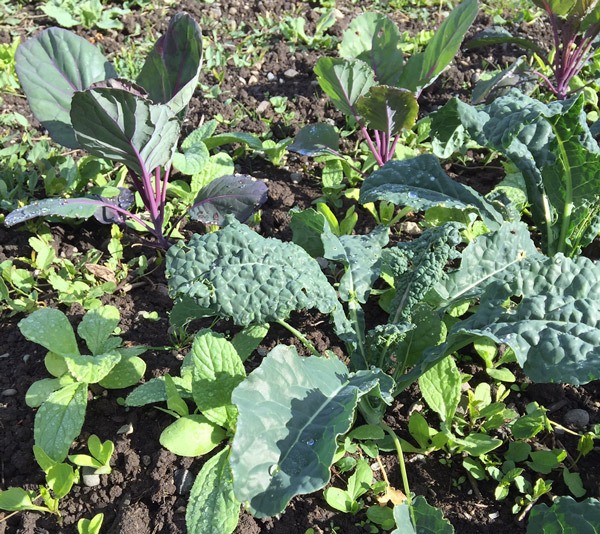A weed is a wild plant growing out of place in our garden, daring to compete with our chosen plants for water, nutrients and space. Because it is a weed, it competes very effectively.
The challenge isn’t merely recognizing weeds when they first appear, but knowing how to prevent and control them. Here are six ways to work on weeds in your garden.
No. 1: Plant spacing
Because weeds take advantage of open space, plant annuals and vegetables closely together so that the sunlight is blocked, helping to slow weed growth. Plant ground covers and ground-hugging plants beneath taller ones in a mixed planting. The goal is to blanket the soil so that even if weeds sprout, they will lack sufficient sunshine to become established.
No. 2: Directed watering
By putting water only on desirable plants (not on pathways and borders of the garden), fewer weeds will grow.
No. 3: Physical methods
The best way to control weeds is physically. Pull, hoe, dig or mow weeds.
The younger the weed is, the easier this is to accomplish. Remember, the goal is to keep your weeds from going to seed.
A vast array of tools can help you do this physical work. Talk to a garden implement specialist when you are shopping to identify the tools that will make this work easier and faster to do.
No. 4: Soil solarization
A tried and true prevention strategy for weed control is soil solarization. This process heats up the soil and kills many (but not all) weed seeds and roots. Wait for the hottest months of the summer; till the soil and remove all visible weeds. Water the soil well and cover it with 2 millimeter clear plastic, anchoring the edges tightly. In four to six weeks the soil will be nearly weed-free and ready for fall planting.
No. 5: Mulch
Mulching is a great way to prevent weeds and retain soil moisture. If you use organic mulch (such as ground bark, sawdust or leaves), it will improve your soil, too, as the material breaks down.
Cover the garden bed with a thick layer of mulch to hold in moisture, suppress weeds and insulate the soil. It also makes the garden look neat and tidy!
If you lay down landscape fabric underneath the mulch, it will be even more effective. To plant, cut a small X through the landscape fabric and plant your prized vegetable or annual.
No. 6: Herbicides
Herbicides should be considered only after exhausting other means of weed control and used with caution. Read the label for proper selection based on the targeted weed and the setting in which you are using it; follow the label directions carefully for application procedures.
Pre-emergent herbicides work by killing weed seedlings as they germinate; they will not work on established weeds.
Post-emergent herbicides are applied to weeds after they have appeared. Post-emergent herbicides work by a variety of methods such as disrupting the weed’s metabolism or mimicking plant growth regulators.
Weed control is merely garden housekeeping; a weed-free garden is attractive and healthy. With good weed control, the sunlight, water, nutrients and space are devoted to the plants that we want growing in our gardens.
Pearl of Wisdom
“Pull when wet; hoe when dry” is wise advice when removing weeds physically. Weeds are much easier to pull right after a good rain.
Under dry conditions, weeds sliced off just below the soil line with a sharp hoe promptly shrivel up and die.
And more
For more vegetable gardening information, join Clallam County Master Gardeners for their monthly walk at the Fifth Street Community Garden at 328 E. Fifth St. in Port Angeles.
These walks, which occur on the second Friday of each month, allow local gardeners to see what should be happening in local vegetable gardens and what problems are likely to arise.
Walks are free and open to the public. The next garden walk is scheduled for noon Friday, Aug. 12.
Elaine Webber is a WSU-certified Clallam County Master Gardener intern.


